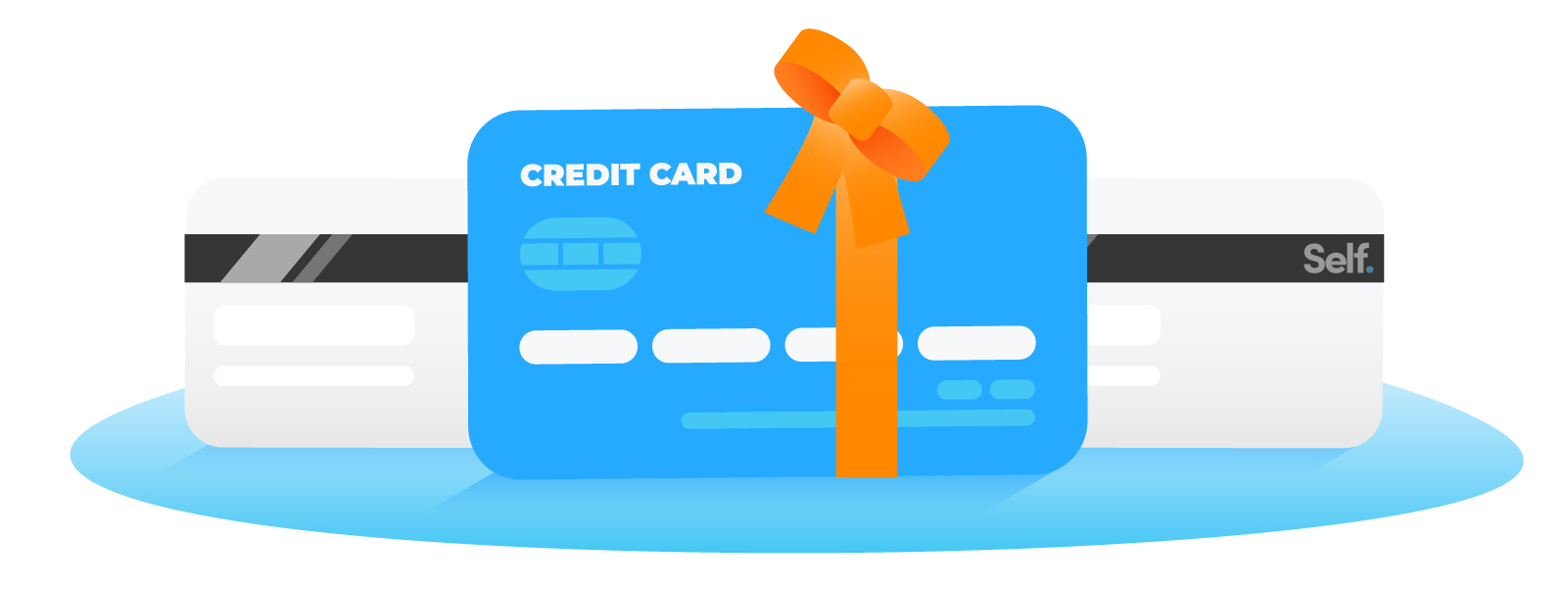5 Major Credit Score Factors
Credit scoring is somewhat secretive. That may seem unfair to consumers, but there’s a reason the creators of credit scores don’t share the exact algorithms they use to create credit scoring models. No company wants to reveal how it designs its credit scoring model — especially not to competitors.
However, both FICO and VantageScore (the two biggest credit scoring model creators in the U.S.) offer you a glimpse at the factors that shape your credit scores. Once you understand how different actions influence credit scores, you can make progress on the path to a good credit score.
Although the VantageScore credit score is widely used (and provided to Self members as a credit monitoring benefit), we’ll focus on FICO credit scores for the rest of this article. FICO Scores are the most popular brand of credit score used by major lenders.
Don’t know what affects your credit score? In this guide, we'll walk through the 5 major factors that impact your FICO credit score and some ways you can use that information to reach a high credit score.
The 5 major factors that affect your credit
So, what affects your credit score exactly? Your FICO credit score is based on information found in your credit reports. So, data found outside of your credit reports, like criminal records, won’t impact these numbers.
The information that influences a FICO Score is broken down into five categories:
- Payment history (35%)
- Amounts owed (30%)
- Length of credit history (15%)
- Types of credit used (10%)
- New credit (10%)
Payment history — 35%

Payment history impacts your credit score more than any other information on your credit report. It’s worth an impressive 35% of your FICO score.
The purpose of a credit score, called its “state design objective,” is to predict the likelihood you’ll become 90 days late (or worse) on any credit account within the next 24 months. If you already have a history of paying bills late, the odds are much higher that in the future you’ll make a late payment on a credit line.
And, if your risk is higher, the credit score you earn will be lower. A lower credit score could mean you are offered a higher interest rate on a credit card or loan. Conversely, a good credit score suggests that you represent a lower risk to a creditor, and could result in lower interest rates, meaning you will pay less on debt.
A credit reporting agency — Equifax, TransUnion, or Experian (or all three) — may receive updates about your payment history from any of the following companies (called data furnishers):
- Credit card company
- Lender (auto loan, mortgage loan, student loan, personal loan, credit builder loan, etc.)
- Collection agencies
Aside from collection accounts, the accounts above have the potential to help you build better credit. But you’ll need to manage each credit account carefully. If late payments are reported to a credit bureau, the account could hurt your credit score instead.
Amounts owed — 30%

Amounts owed is the second-most influential of the credit score factors. Worth 30% of your FICO Score, the amount of debt you carry (especially credit card debt) is nearly as important as whether you pay your bills on time. If you do have credit card debt, try paying it off or down to help keep it from negatively affecting your FICO score.
The primary factor FICO considers in this category is known as credit utilization. Your credit utilization ratio describes how much of your available credit (also known as credit limit) you use each month on revolving credit accounts.
For example, if you have a card with a $1,000 credit limit and an $800 credit card balance, your credit utilization rate is 80%.
If you want a chance to earn great credit scores, aim to maintain the lowest utilization rate you can (ideally 5% or less[1]).
Length of credit history — 15%

FICO doesn’t consider your age when it calculates your credit score. The age of your accounts, however, is another story. Your length of credit history is worth 15% of your FICO Score. Statistics show that consumers with longer credit histories are less risky borrowers.
The idea is that with more data to work with, the results of the scoring model will be better, which helps a lender be more confident in its lending decisions.
A few of the factors FICO considers in the length of credit category include:
- Your average age of accounts
- The age of your oldest and newest account
- How long each account has been open
- The length of time since you’ve used each account
Be cautious about opening too many new credit accounts at a financial institution as this could lower your average age of credit. Also, avoid closing accounts when possible.
Closing an old credit card, for example, won’t cause the account to stop aging. (That’s a myth.)
But a closed, positive account will eventually fall off your credit in around 10 years. When that happens, your average age of credit might decrease, resulting in a lower credit score.
Types of credit used — 10%

Do you have a mixture of account types on your credit report — both revolving credit and an installment loan? If so, FICO scoring models may reward you in the form of extra points for your credit score.
The types of credit you use, also called your credit mix, is worth 10% of your credit score. Credit mix isn’t nearly as influential over your score as other categories. Yet you might still earn extra points in this category over time.
FICO evaluates whether you have experience managing both revolving accounts (like credit cards) and installment accounts (like personal loans or a car loan). If your credit experience is limited to just one type of account, you may not earn as many points as you could have otherwise.
New credit – 10%

The final 10% of your FICO Score comes from the new credit category of your credit report. Applying for too much new credit or opening too many accounts in a short period of time could hurt you here.
When someone requests a copy of your credit report from a reporting agency, a record of the access is added to your credit report. This record is called a credit inquiry.
Hard inquiries, or those that might damage your credit score, take place whenever you apply for something and the lender pulls a copy of your credit report. FICO considers the number of hard inquiries that appear on your credit report within the last 12 months.
Too many recent inquiries could be a sign of financial distress (in other words, you're searching for new credit because you need it to get by) and your credit scores might decline. Yet the potential credit score impact of inquiries is often exaggerated. New credit only accounts for 10% of your score. Plus, some hard inquiries might not affect your credit score at all.
How can you improve your credit score?
1 - Make every payment on time
Do you already have late payments on your credit reports? Thankfully, they’ll impact your credit score less as time passes. Credit scores give more weight to recent late payments than they do late payments made in the past.
Eventually (after 7 years), old late payments will fall off your credit report completely.
2 - Pay down credit card balances
When you reduce your credit card debt, it should trigger a decrease in your credit utilization ratio. Lower credit utilization may impact your credit score in a positive way — sometimes significantly.
If you're already managing your credit cards well and avoiding having to pay interest by carrying a balance, you could ask your card issuer for a credit limit increase. As noted earlier in this article, having more available credit, but using less of it could have a positive impact for your FICO score.
3 - Ask a loved one for help
Do you have a friend or family member who might add you to an older credit card account as an authorized user? If so, the account might help you increase your average age of credit and, by extension, your credit score.
Just be sure the account has on-time payment history and a low utilization rate before your loved one adds you.
4 - Consider adding a new account
You shouldn’t open accounts you don’t plan to use in an effort to improve your credit mix. However, if you only have credit cards on your credit report, adding a credit builder loan might benefit you. The opposite is true as well.
Just be sure that whatever type of account you open, you manage it well with on-time payments and (if applicable) low utilization.
5 - Limit credit check inquiries
It’s fine to check your credit history as often as you like. Doing so will never harm your credit score. But you should only let lenders do a hard credit check when you really need something.
Consider a credit freeze when you're not in the market for a new credit line. Keeping your credit frozen limits the impact to your credit history that can accompany identity theft and it will add a little friction to the process of getting new credit.
For example, it’s generally fine to apply for a new account because you’re working to establish or rebuild credit. But you’ll want to avoid applying for a new retail store card at checkout because you want a 20% discount on your purchase.
Next steps
Now that you understand what affects your credit score, you should take the time to check your three credit reports from Equifax, TransUnion, and Experian. You can claim a free credit report from each credit bureau once every 12 months from AnnualCreditReport.com.
As you look over your reports, search for areas where you can improve. (It’s also wise to search for credit errors at the same time.) Earning better credit takes time, but the benefits of good credit make your hard work worth it in the long run.
Sources
- "FICO® Score High Achievers: Is Age The Only Factor?" on FICO.com
About the reviewer
Lauren Bringle is an Accredited Financial Counselor® with Self Financial– a financial technology company with a mission to help people build credit and savings. See Lauren on Linkedin and Twitter.
